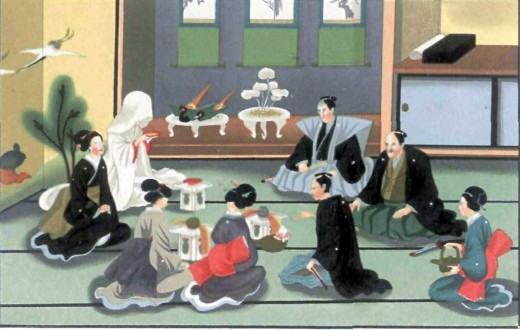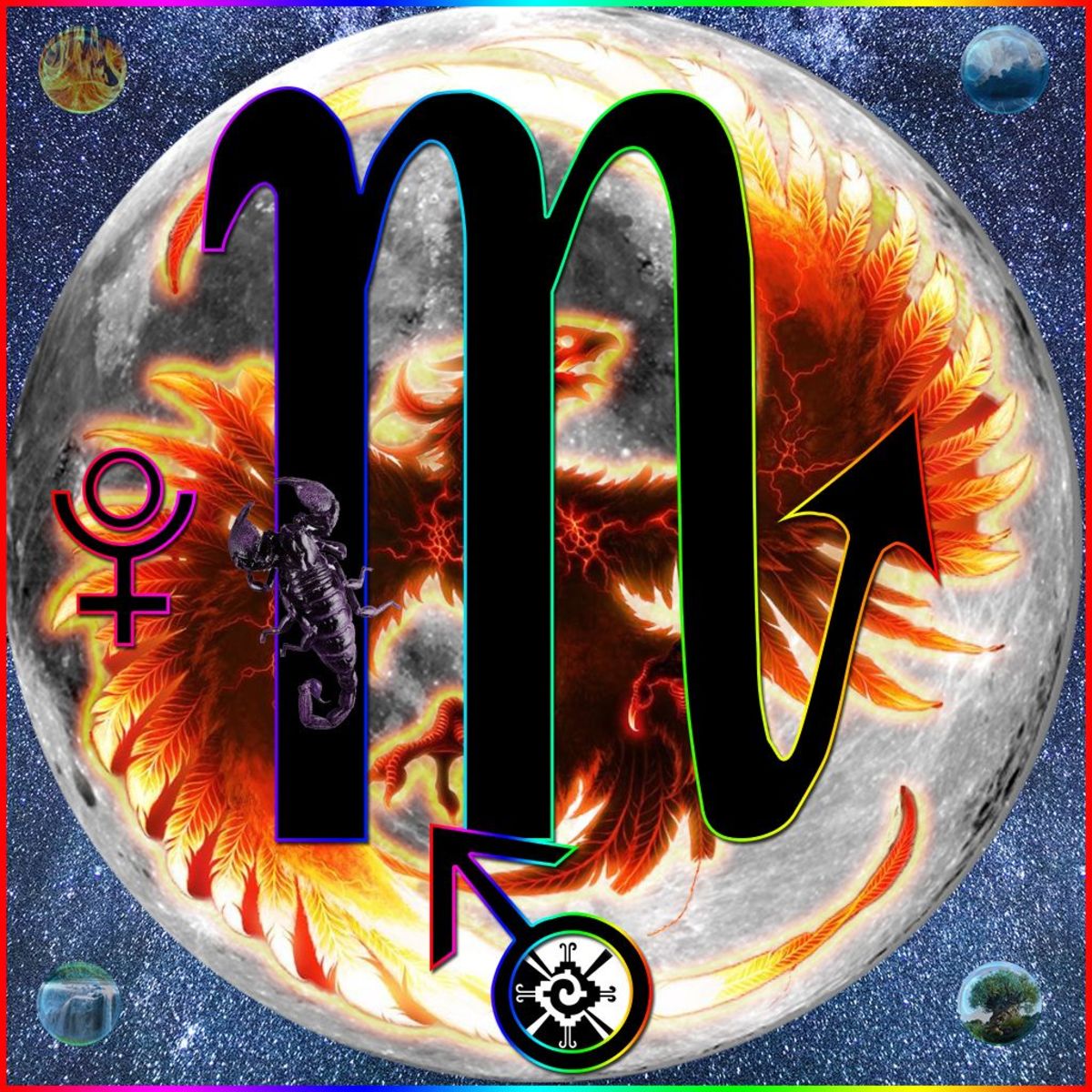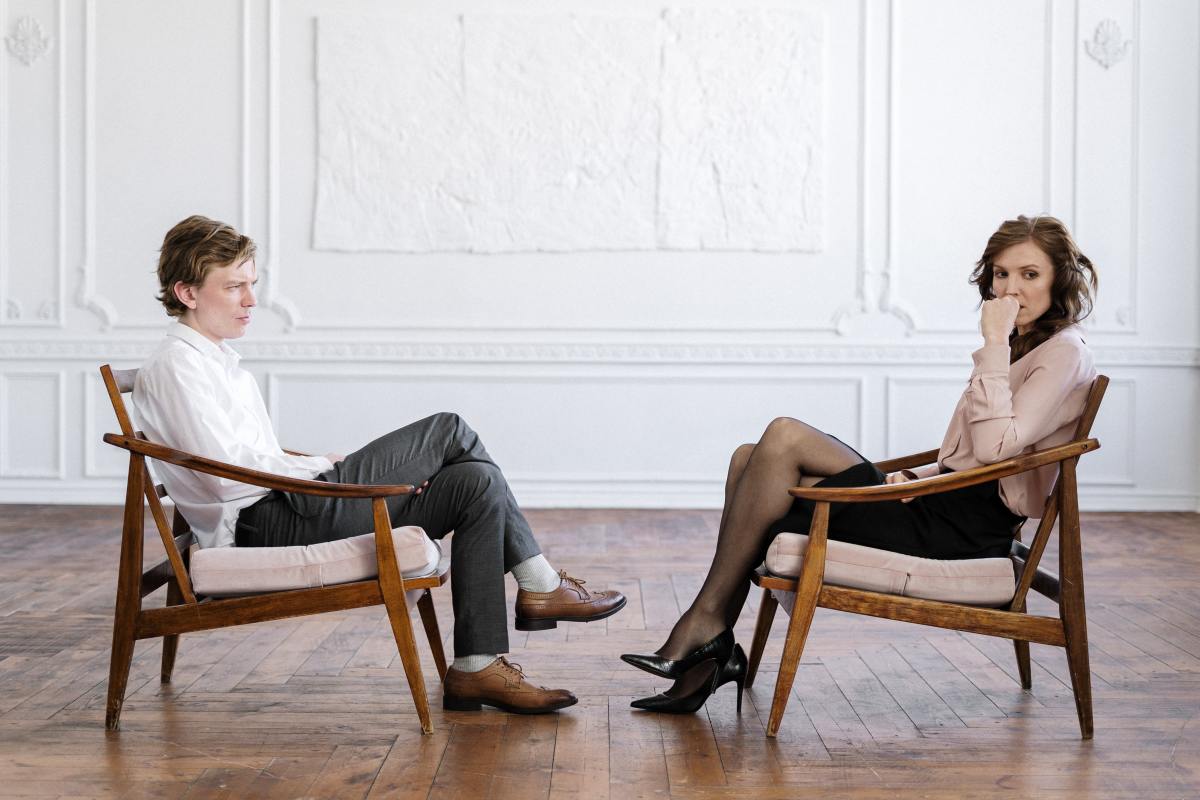LOVE, MARRIAGE, DIVORCE, CHILDREN...
Are you divorced?
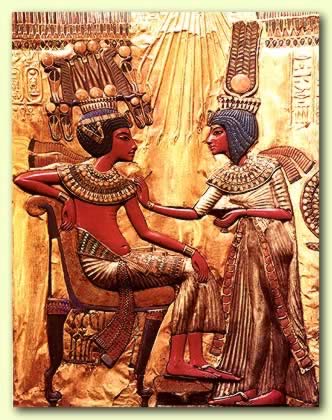
History of marriage, is history of divorce at the same time. Divorce has been present in all times of the human history, but usually used to be much more easily granted to the men. Human societies are in constant process of change, today in the Western civilisation both spouses can ask and get divorce. The children in the highest percent stay with their mothers, so women still have to carry the heaviest burden after divorce (and in marriage as well).
Divorce of my parents, my experience
I am child of divorced parents, what was not easy experience for me during my childhood. My earliest age I spent with my Grandma (also divorced because my Grandfather choose another wife and left her with 2 children), while my Mum went to Germany because of work & money. When she came back to Zagreb (capital of Croatia), she did not have a flat (at that time it was difficult to rent the apartment for single Mums in my country) and was extremely difficult for her to be single parent and play the role of Mother and Father while working full time job.
I was not happy because of my parent`s divorce (separation occurred when I was only 1 year old) and was suffering a lot, feeling a lack of love and family support. Although I was always great in the school, I did not have self-esteem developed, did not feel any foundations in my life. For many years I was missing my Dad who remarried and after that stopped to visit me, and contact me. At that time all of these was very painful but finally I found my own ways to cope with all that, thanks to spirituality, and understand that I had to pass through that experience, because for me that was best way of learning. I am 42 now, my Mum 72, the both of us are very happy today and very grateful for the gift of life. My Father died 3 years ago, few years after his third divorce (all his three wives left him, and I have stepbrother from his first marriage whom my Father "forgot to mention" to my Mum, when they got married)
There were periods when I idealized marriage and used to blame my Mum because of divorce. But finally I met my father`s family: and understood all reasons of her decision: they are great people, bright, intelligent, highly educated, communicative, but so connected that is not possible to breathe freely among them. This is the type of big family they just assimilate you, you have either to give up your own individuality and completely resonate with them, for good or bad, or you have to find your own way without them.
My Mum was born with ideas about men-woman equality. They were integrated in her soul, in her genes, without anybody teaching her that. My father, although social worker, like many men, did not see that he had problems in his marriage and believed that his marriage was perfect, and that my Mum was his property.
The biggest problems my parent`s marriage arrived when I was born: my Mum wanted the child, my father was sure that she could not give the birth, and I came like surprise for him and shock. After my birth everything changed: he did not have energy for his own children, his job took him a lot of energy and his family: brothers, sisters, their children etc. Illusion of their marriage started to fall apart and after some very unpleasant situations ( I would not want to mention the details ) my Mum left him (on her place, I would do the same).
Their marriage would be OK, if they lived on their own, not with his family.
I am not sorry any more because of their divorce, more then anything I am aware that their separation gave me opportunity to use my own brain (my Father`s influence would not let me to) and to learn how to heal wounded emotions and transform them into happiness. But - this is long process.
But for the sake of all children on this world, it is much better that family is stable and that children are loved and protected. It is much more healthier way.
My advice to the all people who decide to marry always would be: think in advance, do not rush to have children, predict all possible problems and try to prevent them BEFORE they happen. Marriage is not an easy game, especially when children come.
Children are future of humanity and most precious gifts of life: treat them with love and respect, give them positive attitude,positive visions, strength and courage. this is the best basis for their life, this will give them feelings of happiness and deep inner harmony. For the kids is the most precious experience to see parents who love, respect and support each other. Such approach can give them good example who to create high quality relationships in their future life.
Although each of us is soul on our own, kids are copying the emotions and behavior of the parents, and it takes a lot of time to change that emotional and behavioural inheritance. Our colleague, EspianScrolls wrote perfect Hub about that subject: http://hubpages.com/hub/What-makes-teenagers-think
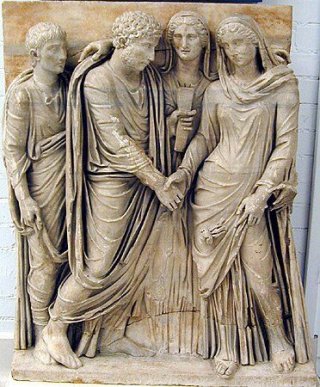
Relationships v.v. marriage & children
The statistic fact is that only 10 % of people are naturally monogamous. The rest is changing partners during the life-time. This is the fact, does not have to do anything with gender, it is "written down in human genes". Sociologists call that behavioural pattern monogamous polygamy or monogamous polyandry.
After I found out that statistic fact, stopped to blame myself, stopped to idealize marriage, stopped to criticize the others. Relationships are best way of mutual learning: two persons can learn a lot from each other while exchanging the energies between themselves.
If we try to fight our genes, without understanding, we are on the best way to become unhappy. Our genes are strange mixture of unfulfilled desires of our parents and our individual soul forces. We have to give ourselves a time to understand what powers are leading us and choose the right track in our life which will make us happy.
We cannot change our inner world if we do not accept ourselves, fulfill our desires, unconditionally love ourselves and with that love create our personal happiness.
For some people part of personal happiness represents changing the love-partners, because their souls learn from each partner different qualities needed in that Earth life. It is matter of experience. Every soul needs different experiences to grow, become wiser, to learn from others - for majority of people relationships are the best schools of life. Without judging ourselves or the others, only Divine in us knows why we need to experience something, no matter how painful or "immoral" that experience look like through the critical eyes of society. It is matter of personal Karma which can be changed after reaching the certain point, when one´s soul develops enough to consciously use Divine power within towards creating personal paradise. Before the reaching critical mass, persists only Karma written down in genes, which play movies seen in the childhood. Our life is partially extension of Karma of our parents and family, although our soul is only ours: part of the karmic path we need to learn is HOW TO FIND BETTER, MORE LOVING; MORE COMPASSIONATE WAYS of solving problems and challenges that our ancestors could not solve.
But when people decide to have children, they should start to behave on much more responsible ways towards the children. Creating family is long-term job. If divorce happens, usually everything falls apart on all levels and usually everybody suffers, emotionally and financially. But this is not always the rule: some marriages are so rotten, that after breaking up, at least one person starts to blossom. It is very difficult to generalize.
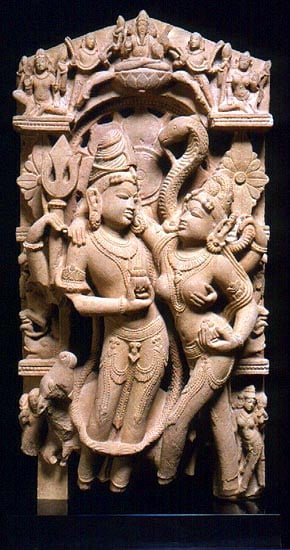
Difference in male-female expectations
Men and women are different and have different expectations towards relationships and marriage.
Many men come into marriage having the mistaken idea that their wives are going to be their cheerleaders, who will take care of them and the children and expect nothing in return. Who will love them unconditionally and forgive them everything. Men believe that their greatest and perhaps only responsibility is to succeed professionally.
The expactation of women is that their marriage will be a wonderfully romantic affair. They imagine romantic candlelit dinners, walks in the rain, evenings of soul-to-soul conversations and passionate romantic nights. They also expect a lot of help while raising the family, and become very surprised when they do not get it on easy way.
There is a big gap between those two assumptions, so developing the communication before the marriage can help the both partners to find the "middle way" and compromise.
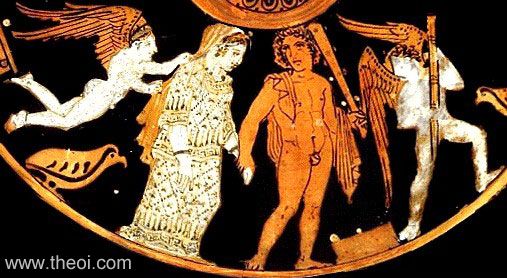
Two thirds of all divorces are initiated by the women
In nowadays, 2/3 divorces are initiated by the women. One of main reasons is lack of responsibility of their husbands: men are more likely to have problems with alcohol, drug abuse or infidelity, or they do not commit themselves to the marriage.
When husband subconsciously does not want to accept responsibilities which marriage brings, keeps to behave like he is still single. It is very difficult to stay with such a person: very often men behave like naughty kids, who refuse to grow up.
From the another side, so many women who are in unstable relationship think that pregnancy and having a child would save and heal relationship. It almost never happens. On the contrary. Having child in inappropriate time makes unnecessary prison-like pressure to the both partners, and relationship (or marriage) the most often becomes even worse and finally ends up with separation. The truth is that none of us can "keep" the other person, if this person does not want to stay with us. If man cannot accept responsibilities of simple relationship, usually he will not be able to accept so many new duties which marriage and kids bring...and will start to run away from the role of Father and husband on more or less subtle ways: alcohol, adultery, drugs, verbal or even physical violence, lack of interest for domestic problems etc, etc.
The best time for marriage and children is when the both partners are really ready and fully desiring that.
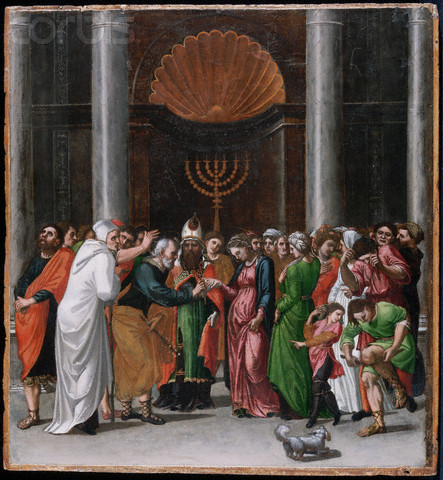
Most common reasons for divorce:
- Lack of commitment to the marriage
- Lack of communication between spouses
- Infidelity
- Alcohol Addiction
- Substance Abuse
- Physical Abuse
- Sexual Abuse
- Emotional Abuse
- Inability to manage or resolve conflict
- Personality Differences or ‘irreconcilable differences’
- Differences in personal and career goals
- Financial problems
- Different expectations about household tasks
- Different expectations about having or rearing children
- Interference from parents or in-laws
- Lack of maturity
- Intellectual Incompatibility
- Sexual Incompatibility
- Insistence of sticking to traditional roles and not allowing room for personal growth
- Falling out of love
- Religious conversion or religious beliefs
- Cultural and lifestyle differences
Let us discuss every reason:
- Lack of commitment to the marriage: lack of maturity
"When so many others can be married and have children, I can do it as well. No problem!" I have heard the similar statement in a lot of nuances so many times from my friends, colleagues, clients. People fall in love with someone, spend few passionate nights and romantic days together and many of them start to dream the most idealistic dreams, about big happy family with cute children. It is nice dream, which is written down in human genes (especially in females). But this is also trick of Mother Nature who inspire us for procreation. In that dreamy state we project our ideals in another person, very often without any objectivity at all. In that dreamy state of emotional/sexual contentment, people often become parents, while still not facing the dark side of the relationship (which is combination of dark sides the both partners). When child comes, it is not easier for couple, and very often not romantic at all. Child is big challenge, who needs enormous amount of energy, love, time and life-experience. In this world we need a lot of money for raising the kids and secure place to live as well. And from the point of quantity of energy needed, one child needs more than two full-time available adults to get enough energy for growing up especially till age 7. (Strong family support or help is an imperative.). It is the most difficult job in this world. And the highest responsibility for the both parents.
Children are not here to connect parents, parents should be connected BEFORE having children, and be prepared and ready for that duty, emotionally, physically, financially, spiritually, child is not an experiment, neither cute doll, neither is parent`s property, neither coincidence ...Child is sensitive human being who needs love and good example from parents. And their warm welcome on planet Earth, not the panic or confusion in their heads and feelings.
For us humans, emotional stability and maturity comes with the life-experience, very often not before age of 40-50. As well as peace of mind and material security. We all leave in turbulent times; majority of us are grown in turbulent families, no need to rush and have children before we realize ourselves and discover what our personal life-goals really are. "Children who have children combination" usually is not the best one for success, is it? The biggest life lesson I have learned up till now, is that for everything we need enough time...and patience.
For happy, stable childhood is very important that parents are mature enough to stay together, if this is not possible, to stay good friends after divorce, so the both of them can raise and support the child(ren) and give the example of love, tolerance and all human values required.
- Lack of communication between spouses
Communication is the most important factor in any relationship. It is energy exchange, it is necessary, it is part of knowing better another person. There is no such thing as healthy relationship without communication - face to face, person to person, mind to mind. Yes, mind to mind: because we always communicate, even without any spoken word. When we think about another person, we send our energies to him/her. Another person sense our feelings. Two people are like two different universes which need to unite and develop in relationship. It does not go overnight. It takes a lot of time to adjust, to attain harmony, and deep understanding. Few months or few short years are not always enough to attain that goal. People need to be patient, especially when having children and not to expect instant harmony without any effort.
- Infidelity
Hm...This is very delicate subject. My opinion is the following; I have right to possess and claim ownership on only one body: and that is mine one. Nobody is my property. I do not own anybody, nobody owns me.
Marriage or relationship should not be a prison. We are not the slaves, and nobody can not be our slave. Especially not the sexual or emotional. Jealousy is not healthy emotion. If I try to imprison the other person, this person will try to run away from me, sooner or later. Being faithful to the spouse has to come as an expression of inner decision, not as pressure. (In some marriages people decide to live sexual freedom: but this can be OK only if the both sides agree with that and do the same, and if nobody is hurt with such a style of life. By my opinion, this is just experiment, cannot fulfill the people on long-term basis.).
Advice for woman: if you meet someone who is obviously Don Juan, do not expect that he will suddenly become a saint, just because he met YOU. If you want stable relationship, find another person who does not like affairs and wants monogamous relationship. Next suggestion: please, do not expect from your husband or boyfriend to be "faithful" to you if you do not intend to enjoy the sex with him for long period of time and you do not have good reason for that. Men usually, after some time, just find somebody else.
- Alcohol Addiction and Substance Abuse
It is very common problem. There is no magic stick which can solve it. Person who abuses alcohol or drugs is self-destructive and leads all family into destruction, without any mercy. Such person needs a lot of healing... All family needs healing. If problem persists and person refuses healing, divorce is only solution.Otherwise, children get the "green light" to develop the same addiction.
- Physical Abuse or Sexual Abuse
If someone starts to physically abuse the other person, the best is to leave him/her, instead to become a permanent victim. Kids must not see family violence and think that is normal. If you put yourselves in the role of victim, you will give wrong example to children and with that type of behaviour you can ruin their lives, or at least many years of their lives.
- Emotional Abuse
There are always two sides responsible for any kind of abuse: one is aggressor, the other is victim. Victim should be one to stop the circle, aggressor never would.
- Inability to manage or resolve conflict
If the
- Personality Differences or ‘irreconcilable differences’
- Differences in personal and career goals
These should not be problem, if there is a lot of tolerance between partners. There is always way to compromise, although I can imagine few situations where compromise is almost not possible (f.E. if one person is butcher, and the other activist of the P.E.T.A)
- Financial problems
This is the most common reason of marital problems and divorce. People should be really cautious when they start to plan the family. Family should not just happen, is always better to think in advance.
The most basic math says the following:
If both spouses together have income of cca 6000 $, they have 3000 $ per person. If wife decides to become stay-at-home Mum , family income becomes let us say 3000 $, and instead of 2 persons with 6000$ to share, one person who earns 3000$ has to feed, clothe and fulfill all material needs for 3, 4 or even 5 people. It is 1000$ or less per person. Big difference, huh?
As you family is becoming bigger, you also need bigger place to live (which is more expensive), maybe new credits....All these is very stressful. The best would be to think about all this future problems at first, and try to find the ways how to prevent them, before they happen.
- Different expectations about household tasks
Traditional roles definitely change, since women started to work. Nobody cannot stick to the tradition nowadays, it is nonsense, rules change. Household tasks should be shared - equally, it is so nice when people can do the things TOGETHER.
- Different expectations about having or bearing children
The best is to test this situation before getting married and before having children. The best way to test somebody´s level of responsibility is to have pet before having the child..
- Interference from parents or in-laws
if parents in-law cannot be really supportive, and help to the married couple, is often the best to politely keep the distance, as much as possible. When they try to interfere too much, very possible they have unsolved marital problems on their own.
- Intellectual Incompatibility
People should learn all life...process of learning should never stop. Somebody is more educated, the other person can have emotional or spiritual intelligence more developed. Is better to encourage the partner on further education, then to brake up.
- Sexual Incompatibility
That problem is very often not possible to solve easily. The person who has higher sexual urge can suffer, as well as the other one. The best is too find the partner who with you have sexual match, and consider that as very important part of the life. When kids come, sexual life always survives an earthquake, people should be prepared on that, this is very often just temporary problem...
- Insistence of sticking to traditional roles and not allowing room for personal growth
Well, stubborn site should change, otherwise, marriage will finish with divorce, sooner or later. Nobody likes to feel like in prison.
- Falling out of love
Very often people get disappointed when sparkling emotions on the beginning of relationship stop to exist. When you start to fall in love is not same as mature love afterwards. Sexual interest becomes naturally less after people live together for some time. But there are many ways how can people keep the fire in their marriage
- Religious conversion or religious beliefs
Spirituality should unity people, unfortunately very often religions are dividing them. People should practice religious tolerance, God is one, we are all part of the same creator, of one cosmic intelligence. This intelligence, almighty we call with many names, but the most important is Love. Love is in root of every spiritual belief, in every religion and far beyond of all of them. It is the only uniting power in our world.
- Cultural and lifestyle differences
Sometimes we can compromise, sometimes is just not possible.
My advice to the all people who decide to marry always would be: think in advance, do not rush to have children, predict all possible problems and try to prevent them BEFORE they happen. Marriage is not an easy game, especially when children come. Honest and open communication is of the greatest importance.
Children are future of humanity and most precious gifts of life: treat them with love and respect, give them positive attitude,positive visions, strength and courage. this is the best basis for their life, this will give them feelings of happiness and deep inner harmony. For the kids is the most precious experience to see parents who love, respect and support each other. Such approach can give them good example who to create high quality relationships in their future life.
And very important: marriage can be perfect without children as well.

Some important facts from history of marriage & divorce
compilation from other websites:
HISTORY OF MARRIAGE IN WESTERN CIVILIZATION
Marriage in Ancient Greece and Rome
In ancient Greece marriage was seen as a fundamental social institution. Indeed, the great lawgiver Solon once contemplated making marriage compulsory, and in Athens under Pericles bachelors were excluded from certain important public positions. Sparta, while encouraging sexual relationships between men, nevertheless insisted on their marrying and producing children. Single and childless men were treated with scorn. However, while marriage was deemed important, it was usually treated as a practical matter without much romantic significance. A father arranged the most advantageous marriage for his son and then had a contract signed before witnesses. Shortly thereafter a wedding celebration was held and the young couple (who might never have met before) was escorted to bed. All marriages were monogamous. As a rule, the bridegroom was in his thirties and the bride was a teenager. In addition to this disparity in ages there also existed an inequality in education and political rights. Women were considered inferior to men and remained confined to the home. Their main function as wives was to produce children and to manage the household while their husbands tended to public affairs. For their erotic needs, men often turned to prostitutes and concubines. As Demosthenes, the orator, explained it: "We have prostitutes for our pleasure, concubines for our health, and wives to bear us lawful offspring." Many men also cultivated intense emotional and sexual relationships with male adolescents (paiderastia). The legal inequality of the sexes was further reflected in the divorce regulations. It was always easier for a husband to divorce his wife than vice versa. However, since a divorced woman could take her dowry back with her, men normally asked for a divorce only in cases of female adultery and infertility.
The marriage laws and customs of ancient Rome are not easily summarized, because they were rather varied and underwent significant changes in the course of time. Still, without simplifying the issue too much, one may say that marriage and divorce were always personal, civil agreements between the participants and did not need the stamp of governmental or religious approval. Early in Roman history, a husband had considerable power over his wife and children, whom he could punish, sell, or even kill as he saw fit. However, eventually women came to enjoy a better legal position and gained more and more control over their lives and property. Thus, in imperial times husband and wife approached marriage as equals. Yet it seems that there was also a decline in marriage and birth rates, since the emperor Augustus found it necessary to pass drastic laws compelling people to marry and penalizing those who remained single. There were several forms of marriage, the first of which (by usus) involved no ceremony at all. It was established simply by the couple's living together for one year. Divorce was just as informal. A more formal kind of marriage (by coemptio) began with a ceremony in front of witnesses and was also dissolved with a ceremony. Members of the upper classes usually preferred an elaborate ceremony and thus married by confarreatio in front of ten witnesses and a priest. In the case of a divorce, another great ceremony was required. However, all three forms of marriage and divorce were equally valid. All marriages were monogamous. Both men and women usually entered their first marriage in their late teens. While the Romans tolerated prostitution and concubinage, and had no qualms about homosexual relationships, their marriage laws were remarkably fair to women and thus greatly contributed to their emancipation.
Marriage in Ancient Israel
As we can learn from the Bible, the ancient Israelites had a patriarchal family structure. The status of women was low—they were regarded as the property of their fathers or husbands and could do nothing without their consent. The main purpose of marriage was procreation and the perpetuation of a man's name. Every healthy person was expected to marry. Single men and women were despised. A man could have several wives and concubines. (Jacob married two sisters, Leah and Rachel, and Solomon had 700 wives and 300 concubines.) Divorce was not encouraged, but permitted if a man found some "uncleanness" in his wife. In such a case, he simply wrote her a bill of divorce and sent her out of his house (Deuteronomy 24:1). However, it was virtually impossible for a wife to divorce her husband. The Bible indicates that the marriage laws and customs of Israel changed somewhat in the course of time. Thus, divorces were increasingly frowned upon, and there was a general trend toward monogamy. Another change concerned the so-called levirate (i.e., the man's obligatory marriage to his brother's widow). This kind of marriage was at times required (Deuteronomy 25:5) and at other times prohibited (Leviticus 20:21). This change was probably related to changing economic conditions. It was usually the patriarch who selected a bride for his son and who paid a "bride price" to her father. The acceptance of this bride price constituted a legally binding betrothal, which was followed by some wedding celebration when the bride took up residence with her new family. Both males and females married in their early teens, shortly after puberty. Theoretically, therefore, neither sex was subjected to any lengthy period of sexual frustration. Still, because of an unquestioned sexual double standard, men had a far greater opportunity for sexual fulfillment than women.
Marriage in Medieval Europe
The rise of Christianity produced a profound change in European marriage laws and customs, although this change came about only gradually. The first Christian emperors were more or less content with the traditional Roman law. However, under varying political and religious pressures, they alternately broadened and restricted the divorce regulations. They also repealed older laws which had penalized the unmarried and childless, since the new Christian asceticism favored virginity and sexual abstinence over marriage. In most other respects they resisted change. Marriage and divorce continued to be civil and private matters. In the following centuries, however, marriage came more and more under the influence of the church. Compared to Rome, the newly Christianized countries of Northern Europe had rather barbaric marriage customs and treated women little better than domestic slaves. In Germanic law, for example, marriage was essentially a business deal between the bridegroom and the bride's father ("sale marriage"). The symbol of a successful "bride sale" was the ring (a form of down payment) which was given to the bride herself. Acceptance of the ring constituted betrothal. The full payment of the "bride price" was made on delivery, i.e., when the actual wedding took place. (Since then, the ring has acquired many other symbolic meanings and, indeed, is still used in our modern marriage ceremonies.) The civilizing influence of the church soon refined these primitive customs. According to Roman law and Christian belief, marriage could be built only on the free consent of both partners, and this doctrine was bound to raise the status of women. Furthermore, theologians increasingly found a religious significance in marriage and eventually even included it among the sacraments. This also endowed a formerly rather prosaic arrangement with a new dignity. Unfortunately, at the same time the church created two new problems: It abolished divorce by declaring marriage to be insoluble (except by death) and greatly increased the number of marriage prohibitions. Now there were three basic impediments to marriage: "consanguinity", "affinity", and "spiritual affinity". Consanguinity (i.e., relationship by blood) was interpreted very broadly up to the 6th or even 7th degree. This meant that nobody could marry anyone more closely related than a third cousin. Affinity referred to a mysterious closeness between the two families of husband and wife. Since the latter were seen as having become "one flesh", all relatives on both sides also became related to each other, a circumstance which made marriage between any of them impossible. Spiritual affinity was said to exist between godparents and godchildren with their families. As a result of these new regulations, the influence of the church on marriage was greatly strengthened. Very often extensive clerical investigations were necessary to prove or disprove the existence of impediments. For example, marriages that had been entered in ignorance or defiance of such impediments were considered null and void. In these cases the church was therefore willing to pronounce an "annulment". Since divorce was no longer permitted, an annulment was the only way of dissolving a marriage, and thus many married couples who had tired of each other sooner or later conveniently discovered some previously overlooked marriage impediment. The church also began to post so-called banns before each wedding, inviting anyone with knowledge of an impediment to come forward. The growing church involvement in marriage could further be seen in the development of a special religious wedding ceremony. In the first Christian centuries marriage had been a strictly private arrangement. As late as the 10th century, the essential part of the wedding itself took place outside the church door. It was not until the 12th century that a priest became part of the wedding ceremony, and not until the 13th century that he actually took charge of the proceedings. Nevertheless, it remained understood that, even as a sacrament, marriage sprang from the free consent of the two partners, and that therefore neither the parents nor the priest nor the government could affect its validity. It thus became possible for couples to get married secretly if they could not obtain anyone else's approval. It also became possible for very young children to be married, if their parents could coax the necessary consent out of them. Especially aristocratic families often took advantage of this possibility when they found a politically advantageous match for their little sons or daughters. On the average, however, males married in their mid-twenties, and females in their early teens (i.e., soon after their first menstruation). Today it may be tempting to see medieval marriage in the light of certain lofty religious doctrines and the poetry of the troubadours. However, throughout most of the Middle Ages and for the greater part of the population marriage remained a practical, economic affair. Romantic love hardly had any place in it. Moreover, the social and legal status of women, while somewhat improved in some countries, continued to be very low.
Marriage in Modern Europe and America
The Protestant Reformation of the 16th century rejected the prevailing concept of marriage along with many other Catholic doctrines. Martin Luther declared marriage to be "a worldly thing . . . that belongs to the realm of government", and a similar opinion was expressed by Calvin. The English Puritans in the 17th century even passed an Act of Parliament asserting "marriage to be no sacrament" and soon thereafter made marriage purely secular. It was no longer to be performed by a minister, but by a justice of the peace. The Restoration abolished this law and reverted to the old system, but the Puritans brought their concept of marriage to America where it survived. Luther and other Protestants also reduced the number of marriage impediments. Affinity and spiritual affinity were no longer considered obstacles, and consanguinity was interpreted much more narrowly than before. Thus, even marriages between first cousins became possible. The Catholic church, in response to the Protestant challenge, took its stand in the Council of Trent and, in 1563, confirmed its previous doctrines. Indeed, it now demanded that all marriages take place before a priest and two witnesses. Among other things, this virtually eliminated not only secret marriages, but also the formerly common informal marriages. These, similar to the old Roman marriages by usus, were based simply on mutual consent without formal ceremony. In England they came to be called "common law marriages", and since Henry VIII had broken with Rome, they continued to be permitted until 1753, when the Church of England was put in charge of all marriages (including those of Catholics, but excluding those of Quakers and Jews). This development did not affect the English colonies, however, and thus common law marriages remained possible in America. (As recently as 1970 they were still recognized in several states.) In most of Europe marriages continued to require a religious ceremony until the French Revolution in 1792 introduced the compulsory civil marriage. Germany followed suit in the 19th century when Bismarck diminished the influence of the Catholic church. Eventually, marriage before some magistrate or government official became the only valid form of marriage in most of the Western world. Religious weddings were still permitted, but only after the civil ceremony had taken place. Another contested issue was that of divorce. In opposition to Catholic doctrine, the Protestant Reformers did not believe that marriage was insoluble, but favored divorce under special circumstances. The Puritan John Milton in his Doctrine and Discipline of Divorce (1643) even advocated self-divorce without the involvement of either church or government. For him, marriage rested entirely on the full compatibility of both partners. Where mutual love was lacking, marriage was a sham and had to be dissolved. However, this philosophy was too far ahead of its time.
In 19th century Japan, at least one in eight marriages ended in divorce
Islam
In Islamic law, divorce is accepted and referred to as talaq. However, divorce is considered the most hated of all lawful things in the sight of Allah.
In the medieval Islamic world and the Ottoman empire, the rate of divorce was higher than it is today in the modern Middle East which now has generally low rates of divorce. In 15th century Egypt,it was recorded the marital history of 500 women, the largest sample on marriage in the Middle Ages, and found that at least a third of all women in the Mamluk Sultatnate of Egypt and Syria married more than once, with many marrying three or more times. According to Al-Sakhawi, as many as three out of ten marriages in 15th century Cairo ended in divorce.
In the early 20th century, some villages in western Java and the Malay peninsulhad divorce rates as high as 70%.
